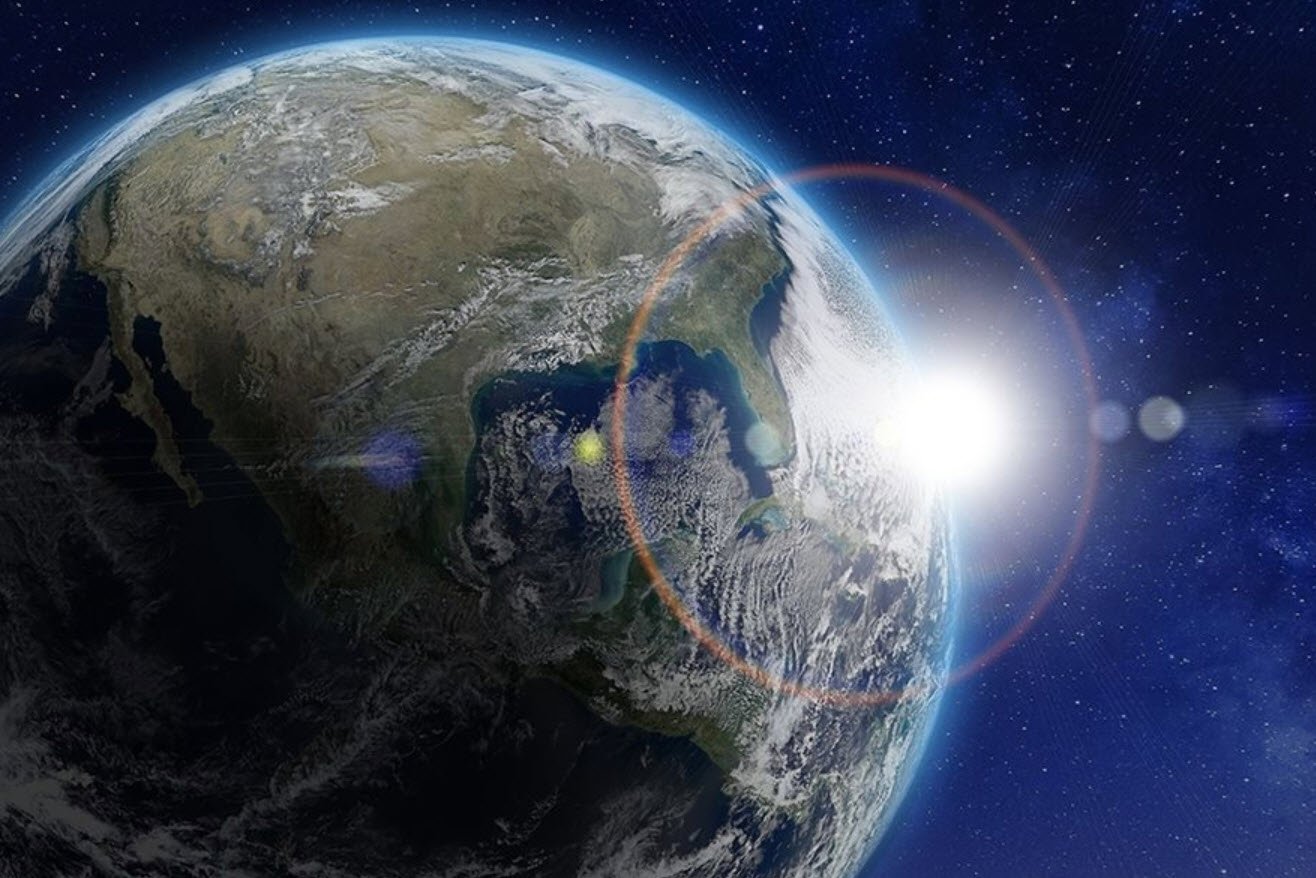
On this page, you will find most important questions people are asking about environmental science and nature in an interview or in essay writing competition.
Standard interview questions like “What is environment?” have taken on new meaning after going through the Covid-19 pandemic. The pandemic has also given recruiters and interviewers new information they want to pull from candidates. If you’re searching for a job in environmental science, prepare to hear 200+ questions that came out of the pandemic:
- Define the term environment, habitat and biodiversity.
- Explain multidisciplinary nature of environment studies.
- Differentiate between biotic and abiotic components of environment.
- Write the names of various subjects helpful in understanding the biotic and abiotic components of environment.
- Discuss the scope of environmental studies.
- What is the importance of environmental studies?
- Discuss the need of public awareness about environmental problems.
- Name the different segments of environment. Explain any one of these.
- How can you divide the atmosphere on temperature bases?
- What is biosphere? Name Its segments.
- What is environmental Chemistry? Describe briefly the segments of the environment.
- Write an explanatory note on the multidisciplinary nature of environmental science.
- Describe briefly the need of public awareness about the environment.
- Describe the scope and importance of environmental studies.
- Discuss environmental problems and their effective solutions.
- What are renewable and non-renewable resources? Give examples.
- What are the major causes and consequences of deforestation?
- What is an aquifer? Discuss its types.
- What are the environmental impacts of ground water usage?
- Should we build big dams? Give arguments in favour of your answer.
- What are the uses of various types of minerals?
- Discuss the major environmental impacts of mineral extraction.
- What is overgrazing? How does it contribute to environmental degradation?
- Give a brief account of non-renewable energy resources.
- What are solar cells? Draw a diagram and enumerate its applications.
- Discuss the merits and demerits of wind energy.
- Comment upon the types of energy harnessed from oceans.
- What is Biomass, Bio-fuels and Biogas?
- What are the use of forests?
- What are the effects of constructing dams on forests and people?
- What is the importance of water?
- Write the problems due to use of modern techniques in agriculture.
- Explain Why soil resources are important for human welfare?
- What are the methods for conserving soil erosion?
- What are the methods for conserving Water resources?
- What are the effects of deforestation?
- What do you know about desertification?
- Discuss the major uses of forests. How would you justify that ecological uses of forests surpass commercial uses?
- Discuss with the help of a case study, how big dams have affected forests and the tribals.
- Briefly discuss droughts and floods with respect to their occurrence and impacts.
- What are the major causes for conflicts over water? Discuss one international and one inter-state water conflict.
- What do you mean by
(a)Eutrophication
(b) Super pest
(c) Shifting cultivation
(d) Water logging? - Write short notes on:
(a) Wind Energy
(b) Tidal Energy - What is soil erosion? How can it be checked?
- How can an individual conserve different natural resources?
- Write short notes on:
(a) Solar energy
(b) Geothermal energy - Discuss the use of forest resources. What are the effects of over-exploitation and deforestation.
- Discuss the effects of modern agriculture methods.
- What is effect of water logging and salinity on food resources?
- Discuss the effects of construction of dams and mining of forests and tribal people.
- What are the causes of deforestation? Explain the consequences of deforestation.
- Write an essay on water resources. Bring out the effect of over utilization of surface and ground water.
- Describe the various energy resources.
- Discuss the various renewable and non renewable resources of energy.
- Discuss briefly what do you know about land resources.
- Write short note on:
(a) Soil erosion
(b) Soil conservation
(c) Water logging - What do you know about equitable use of resources for sustainable life style?
- Who coined the term “Ecosystem”?
- Define the term ecosystem?
- What is meant by food chain?
- What is food web?
- What are ecological pyramids?
- Which type of ecological pyramid is always upright?
- What is the primary source of energy for all living organisms?
- What are the two main components of an ecosystem?
- Define ecological succession.
- Name different type of ecological succession.
- Name different types of ecosystems.
- What are the characteristics of an ecosystem?
- Name different types of structural components of an ecosystem.
- What are the biotic and abiotic components of an ecosystem?
- What are trophic levels?
- What is a climax community?
- What type of organisms are called producers in the ecosystem? What is their role in the ecosystem?
- What are decomposers? Explain their role in the ecosystem.
- Distinguish between:
(a) Food chain and Food web
(b) Grazing food chain and detritus food chain. - Write a short note on Tropical Rain Forest?
- What are the functional aspects of an ecosystem? Why the Pyramids of Energy are always upright?
- What is the energy flow of an ecosystem? Show that it is unidirectional.
- What are the characteristics of biotic succession? What are the causes of ecological succession?
- Explain in detail Xerosere (Xerach) succession?
- Explain the different zones of ocean ecosystem?
- What are the different zones of a lake ecosystem? Give its structure.
- Write short note on tropical rain forest?
- Discuss the salient features of estuarine ecosystem.
- Give an account of energy flow in an ecosystem.
- Describe the biotic components of a grassland ecosystem.
- Explain the process of succession in a newly formed pond.
- What are the ecological pyramids? Explain the relevance of pyramid of numbers in an ecosystem.
- Name and describe the characteristic features of various types of forest ecosystem.
- What is ecological succession? Describe the process of ecological succession on a bare rock.
- What are food chains and food webs? Give examples and discuss their significance.
- Discuss the zonation in ocean. What role is played by oceans in terms of providing resources and regulating climate?
- Discuss the structure and function of forest and grass land ecosystem.
- Discuss in detail the fresh water and marine water ecosystems with suitable examples.
- Define biodiversity.
- What are the different levels of biodiversity?
- What do you mean by social and ethical value of biodiversity?
- What is the aesthetic and optional value of biodiversity?
- How many national parks and sanctuaries are there in India?
- Define hot spot. Name the the hot spots in India.
- What are endemic species?
- What are endangered species?
- What is Cryo-preservation?
- Give the location and important Animals of Corbett National Park.
- Which day is celebrated as “World Environment Day”?
- How many biosphere reserves are found in India?
- How many bio geographical regions have been identified in India? Name any three of them.
- What are IUCN and WWF?
- List some causes of extinction of species.
- Why is India known as ‘Megadiversity Nations’.
- Discuss the biodiversity at National and Global level.
- Define the followings:
(a) Exotic species
(b) Endemism
(c) Red Data Book
(d) Hot Spots
(e) Biosphere Reserves
(f) Endangered Species - What kind of threats to the biodiversity may lead to its loss?
- What are the various strategies of ex situ conservation of biodiversity?
- Differentiate between in-situ and ex-situ conservation.
- Differentiate between Natural extinction and Man-made extinction.
- Write a short note on IUCN Red data list.
- What are the main objectives of conservation of biodiversity.
- What is extinction of species? Describe the processes which lead to extinction of species.
- How is diversity at all levels generally conserved?
- Discuss India as a mega diversity Nation?
- Discuss the various bio geographical regions with respect to floral diversity in India.
- Write an essay on ‘value of biodiversity’.
- Describe the biodiversity at Global, National and Local levels.
- What are the differences between National Parks, Wild life Sanctuaries and Biosphere reserves?
- Enumerate five name, locations and particular species protected in National Parks, Wild life Sanctuaries and Biosphere Reserves.
- Discuss in detail the conservation strategies of biodiversity.
- Enlist some important steps for the conservation of biodiversity.
- What is meant by pollution and pollutants. Name different types of common pollutants.
- What are the two types of air pollutants. Name any two pollutants of each type of air pollutants.
- Write full forms of the following:
(a) BOD
(b) PAN
(c) CFC’s
(d) COD
(e) MIC - Name the major air pollutants and their sources.
- Name any two biodegradable and non-biodegradable pollutants.
- Name various sources of air pollution.
- Give an account of adverse effects of air pollution.
- What is particulate matter? How do particulate matter harm human health?
- What are the main sources of water pollution?
- What are the harmful effects of water pollution.
- Mention the cause of:
(a) Smog
(b) Acid rain - What is noise? What are its effect on human health.
- Differentiate between sound and noise. Give two ill effect of noise pollution.
- What is marine pollution? How can it be controlled?
- What is radioactivity? What are the sources of radioactivity?
- Discuss various effects and control measures of thermal pollution.
- Classify solid waste. How can the solid waste be managed?
- Enlist only five important roles that an individual can play in preventing environmental pollution.
- Write short note on Bhopal gas tragedy.
- What do you know about chernobyl nuclear disaster?
- Define pollution. Describe the causes, effects and control measures of air pollution.
- What are the natural and man made pollutants that cause air pollution? Give and account of indoor air pollution and its adverse effects.
- Enumerate with examples the major sources of surface water pollution and underground water pollution. What are the harmful effects of water pollution?
- What are the main causes of water pollution? How can water pollution be controlled?
- Briefly describe the sources, effects and control of noise pollution.
- Discuss various sources of marine pollution. How can you prevent pollution of our oceans?
- What do you understand by the term thermal pollution? Discuss various effects and control measures of thermal pollution.
- What are major sources of soil pollution? How does soil pollution affect soil productivity? What measures can be taken to prevent soil pollution?
- What are Agrochemicals? How do they effect our environment? Describe their role in soil and water pollution and suggest alternatives.
- Describe solid wastes and discuss in brief the control measures of urban and industrial wastes.
- What is pollution? Describe the role of an individual in prevention of pollution.
- What is radioactive pollution? Describe its hazards in the light of a nuclear disaster.
- Write short note on any three of the following:
(a) Primary and secondary pollutants
(b) Effects of noise pollution
(c) Eutrophication
(d) Salination
(e) Biomagnification - Describe the following terms:
(a) Oil spill
(b) Weedicides
(c) Pesticides
(d) Chloro Fluoro Carbons (CFCs’)
(e) PAN
(f) Photochemical smog - Define “Sustainable Development”.
- What do you mean by raw water harvesting?
- What are environmental ethics?
- Define ‘Acid Rain’. Give its composition.
- Define Wasteland reclamation.
- What are watersheds?
- What are green house gases?
- Name the green house gases present in the atmosphere.
- What is formal and informal education?
- What the effects of Global warming?
- How is ozone layer depleted?
- What is meant by the term wasteland?
- Name some Non-Government organisations related to environment.
- What causes waste lands?
- What do you mean by rain water harvesting?
- What is sustainable development? Describe the steps for sustainable development.
- What is rain water harvesting? Discuss its significance.
- Write about the depletion of ozone layer and its adverse effects.
- What are environmental ethics? List them.
- List measures to check global warming.
- What do you understand by nuclear accidents and nuclear explosions?
- Define acid rain, its composition and ill effects.
- How does ozone layer protect us?
- Write explanatory notes on:
(a) Green house effects
(b) Ecomark
(c) Ozone hole
(d) Watershed Management. - Mention the objectives of Wild Life Protection Act, 1972.
- What are the urban problems related to energy?
- Discuss consumerism and waste products in relation to developed and developing countries.
- How can public awareness be created among people?
- What is the issues involved in enforcement of environment legislation.
- What is environment protection Act 1986 and discuss it in detail.
- Define global warming. Explain the causes and ill effects of global warming.
- What is ozone layer? Give its significance. What are the causes and ill effects of depletion of the ozone layer?
- What is wasteland? Describe the causes of its formation and its reclamation practices.
- Write short note on:
(a) Water Act, 1974
(b) Environmental Protection Act, 1986. - Describe the important means of water conservation.
- Discuss the problems and concerns of resettlement and rehabilitation of people as a result of development projects.
- Discuss Air (Prevention and Control of pollution) Act, 1981.
- What is meant by ozone shield? How CFC’s affects ozone shield?
- Discuss some case studies of Rehabilitation of displaced people as a result large projects.
- How can public awareness about environmental be created among people?
- Define population.
- What are the two main causes of population explosion in India?
- What is the full form of AIDS?
- Name the species to which human beings belong.
- What was the human population at the beginning of 20th century?
- Why 11th July in observed as World Population Day?
- Define biotic potential.
- What is population growth?
- What do you mean by value education?
- What is Natality and Mortality?
- What is demography?
- What is the full name of HIV?
- What is zero population growth?
- What is maximum carrying capacity?
- What is human population of India and China at Present?
- Give a concise account of various characteristics of a population of organisms.
- Write Short notes on:
(a) Age Structure
(b) Population Growth Curve
(c) National Human Rights Commission. - What is the difference between:
(a) Natality and Mortality
(b) S-shaped Growth Curve and J-shaped Growth Curve. - Describe J-shaped growth curve with the help of a diagram.
- Describe S-shaped growth curve with the help of a diagram.
- What the preventive measures for population explosion?
- Discuss the components of value education.
- What is the importance of value education?
- What are the objectives of human rights?
- What are the sources of AIDS? What are the methods to control the disease?
- Discuss the family planning welfare and family planning movement in Indian context.
- What is meant by population explosion? Discuss the Indian-scenario.
- What is Universal Declaration of Human Rights? What is the importance of Human Rights?
- Discuss the various issues and measures for woman and child welfare.
- Briefly discuss AIDS, Its mode of transmission, symptoms and prevention methods.
- Discuss the role of information technology in Environment.
- Discuss the objectives and guiding principles of environmental education with reference to India.
- What are the high lights of children welfares? Give some programmes initiated by Indian Government for children welfare.
- Discuss the role of information technology in the human health.
- Write short notes on:
(a) Consequences of over population
(b) Population trends in India
(c) Human rights.
- Exploring the Enigmas of Science – Unraveling Celestial Mysteries and Physical Conundrums
- Semiconductor Related Terms – A Beginner’s Guide
- Major Trenches and Ridges Around the World
- [The Planets] Mercury to Neptune – Some Known Facts
- Unraveling Earth’s Mysteries – A Journey through Intriguing Questions
- The Principal Causes of Pollution – A Comprehensive Overview
- Thermal Pollution – Causes, Effects, and Solutions
- What is Noise Pollution?
- Why Are Bacteria and Microbes Afraid of UV Light?
- Soil Pollution – Causes, Effects, and Solutions







